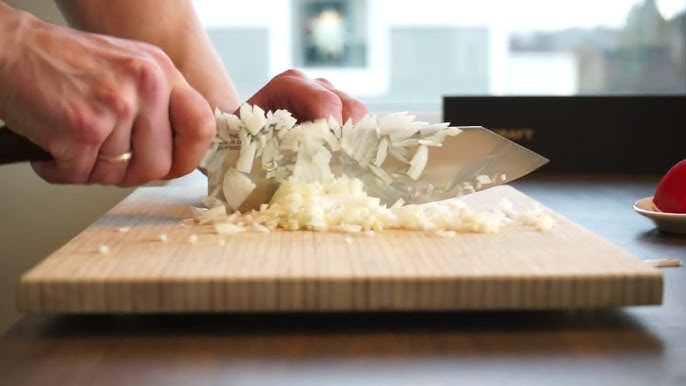When it comes to kitchen cutlery, German knives have earned a sterling reputation among both professional chefs and home cooks. A common question that arises is why are German knives heavy? This characteristic weight is not just a random feature; it is a deliberate choice that contributes to the knives’ functionality and performance. In this article, we will explore the reasons behind this distinctive attribute.

The Craftsmanship Behind German Knives
German knives are renowned for their quality craftsmanship. Brands like Wsthof and Zwilling J.A. Henckels have been perfecting their knife-making skills for centuries. The weight of these knives is a testament to the meticulous attention to detail and the high-quality materials used in their production.
Materials Used in German Knives
One of the primary reasons German knives are heavier is the materials used. Typically, these knives are crafted from high-carbon stainless steel, which is known for its durability and strength. This type of steel is denser than other materials, contributing to the overall heft of the knife.
Design and Balance
Another factor contributing to the weight is the design. German knives are engineered for balance. The extra weight helps in providing a well-balanced feel, which is crucial for efficient cutting and chopping. The full tang design, where the blade extends through the handle, also adds to the weight but ensures stability.
The Functional Benefits of Heavier Knives
While some might think that a lighter knife is easier to handle, the weight of German knives offers several advantages. The heft of the knife aids in cutting through tougher ingredients with less effort. This is particularly beneficial when dealing with meats and hard vegetables.
Precision and Control
A heavier knife allows for greater precision and control. The weight helps in maintaining a stable motion, reducing wrist fatigue during prolonged use. This is one reason why professional chefs often favor heavier knives in their kitchens.
Durability and Longevity
The robust construction of German knives means they are less prone to bending or chipping, ensuring a longer lifespan. Investing in a quality German knife can be a lifetime commitment, as these knives are built to withstand the test of time.
Comparing German Knives to Other Types
Not all knives are created equal, and when comparing German knives to other types, such as Japanese or ceramic knives, the differences become apparent. Japanese knives, for instance, are often lighter and more delicate, designed for precision slicing rather than heavy-duty tasks.
The Role of Tradition in German Knife Making
German knife-making traditions have a long history, with Solingen being the heart of this craftsmanship. The techniques and methods passed down through generations have influenced the distinctive characteristics of these knives, including their weight.
For more on the history of German knife making, you can explore this detailed history.
Choosing the Right Knife for Your Needs
When selecting a kitchen knife, it is important to consider what tasks you will be performing most often. If your cooking involves a lot of chopping and cutting through tough ingredients, a German knife might be the ideal choice due to its weight and durability.
German Knives for Beginners
For those new to cooking, starting with a German knife can set a solid foundation. These knives offer versatility and are forgiving for those still perfecting their skills. You can find a suitable option by checking German knife sets for beginners.
Left-Handed Users
German knives are also designed to accommodate left-handed users, ensuring comfort and ease of use. For more information, visit this resource.
Maintaining Your German Knife
Proper maintenance is key to ensuring the longevity of your German knife. Regular sharpening and cleaning will keep your knife in top condition. For tips on maintaining your knife, you can visit this guide on knife care.
Testing Sharpness
To ensure your knife is performing at its best, testing its sharpness regularly is important. Learn how to do this effectively by checking this guide.
Conclusion
In conclusion, the weight of German knives is a defining feature that enhances their functionality and performance. From the choice of materials to the craftsmanship involved, each aspect contributes to creating a tool that is both reliable and efficient. Whether you are a professional chef or a home cook, understanding the reasons why German knives are heavy can help you appreciate their value and make an informed choice for your culinary needs.

FAQ
Are all German knives heavy?
Not all German knives are heavy, but many are designed to have a certain heft that aids in cutting and chopping tasks.
Do German knives require special maintenance?
While they do not require special maintenance, regular sharpening and proper cleaning will ensure their longevity and performance.
Can beginners use German knives?
Yes, beginners can use German knives. They offer versatility and are well-suited for a variety of kitchen tasks.
This article contains affiliate links. We may earn a commission at no extra cost to you.


